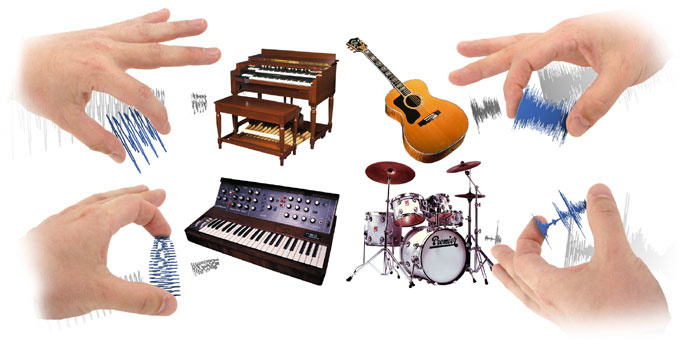According to Wikipedia, in music, sampling is the reuse of a portion (or sample) of a sound recording in another recording. In other words, it is the use of an aspect(s) of a song such as a rhythm, melody, speech, sounds, or entire bars of music, and maybe layered, equalized, sped up, or slowed down, repitched, looped, or otherwise manipulated which are usually integrated using hardware(samplers) or software such as digital audio workstations.

Sampling is a foundation of hip hop music, which emerged with the 1980s producers sampling funk and soul records, particularly drum breaks, to be rapped over. It has since influenced all genres of music, particularly electronic music and pop. Samples such as the Amen break, “Funky Drummer” drum break, and orchestra hit have been used in thousands of recordings. DJ Shadow even released an entire album in 1996 titled “Endtroducing” that was created entirely from samplings.
Since then, Samplings have been a normal phenomenon in the music industry, with artists around the world sampling songs of their colleagues, legends, or icons. Nigerian artists like Wizkid and Burna Boy have built a great catalog of music sampling the legendary Fela Kutti’s songs. Cameroon’s Jovi also sampled artists like Tabu Ley Rochereau in“Pitie“, Eko Roosevelt in “Bush Faller“), and Lapiro off his H.I.V Album that was released in 2012.
Recently, rapper Mic Monsta released Loca Lokito off his 2nd studio album titled Vibes Clinic which is a sampling of Nkotti Francoise’s “Beyengue ba Desto”, a Makossa hit that was released in the 90s. He uses the rhythm of the song to paint a cultural picture of our present-day society.
The song “Loca Lokito” brings back those nostalgic feelings we had when Makossa was our mainstream music. All Makossa lovers, especially fans of Nkotti Francoise have greatly appreciated the song, and also the new generation of music lovers are being connected to the rhythms of the yesteryears, as those who didn’t know about Nkotti Francoise are now google-searching about him and discovering his rich makossa discography.
This is a big cultural booster, as it brings back the memories of old, and gives it a chance to live on for other decades to come.
What if more of such samplings are done? More Makossa, Asiko, Benskin, Bottle dance, or Bikutsi are fine-tuned to suit the taste of the present generation? Cameroonian culture will be upheld, valorize, and we won’t have to complain about foreign artists coming to perform here or foreign music being played in our clubs and events because the original sounds will be there for us to dance to.
We will love to see more of such samplings of our original sounds by our modern-day artists.